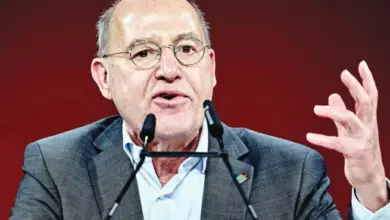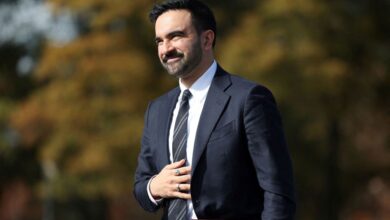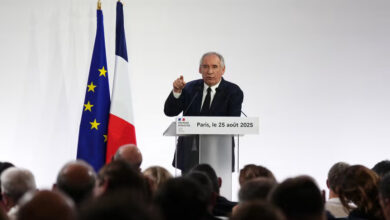Mohamed ElBaradei pulled out of the race for the Egyptian presidency on Saturday, saying "the previous regime" was still running the country that has been without a head of state since Hosni Mubarak was deposed last year.
“I have decided not to run for the post of the president of the republic,” the former head of the UN nuclear watchdog said in a statement distributed by his electoral campaign.
The Nobel laureate, who has been seen as a driving force behind the movement that forced Mubarak to step down, said the conditions for a fair election are not in place, and denounced what he called the military's failure to put the country on the path to democracy.
"My conscience does not permit me to run for the presidency or any other official position unless it is within a democratic framework,” he said.
He praised the revolutionary youths who led massive popular uprisings that ousted Mubarak last year but said "the former regime did not fall."
ElBaradei compared the revolution to a boat and charged that "the captains of the vessel … are still treading old waters, as if the revolution did not take place."
He said that corruption is still rife in post-Mubarak Egypt, which is being ruled by a military council since the veteran president was ousted in February 2011 following an 18-day popular uprising.
"We all feel that the former regime did not fall," he said in the statement.
While the army was credited for its support of the 25 January revolution, the ruling Supreme Council of the Armed Forces (SCAF) has since been criticized for using force against demonstrators and setting a slow pace for reforms.
"Instead of uniting the nation through an organized political process … [the council] has taken all decisions alone in a way that reflects confusion, and exacerbated divisions in the society while we are in dire need of solidarity," ElBaradei said.
He said that the army generals were adopting the same "repressive" policies as the former president, adding that the army was putting "revolutionaries on trial in military court instead of protecting them and punishing those who killed their friends."
His comments reflect growing disenchantment with the SCAF.
The SCAF has repeatedly pledged to cede full powers to civilian rule when a president is elected by the end of June, but there is widespread belief that the military wants to maintain a political role in the country's future.
The military has also come under fire over its human rights record in recent months.
Egypt witnessed deadly clashes between democracy protesters and regime forces in November — before parliamentary polls began — and again in December.
Mubarak is on trial and the prosecution has called for him to be hanged for the killing of hundreds of demonstrators during the uprising that ousted him.
Amr Moussa, a front-runner for Egypt's presidency, expressed his sorrow on hearing of ElBaradei’s decision, saying he values ElBaradei’s role in recent developments in Egypt.




